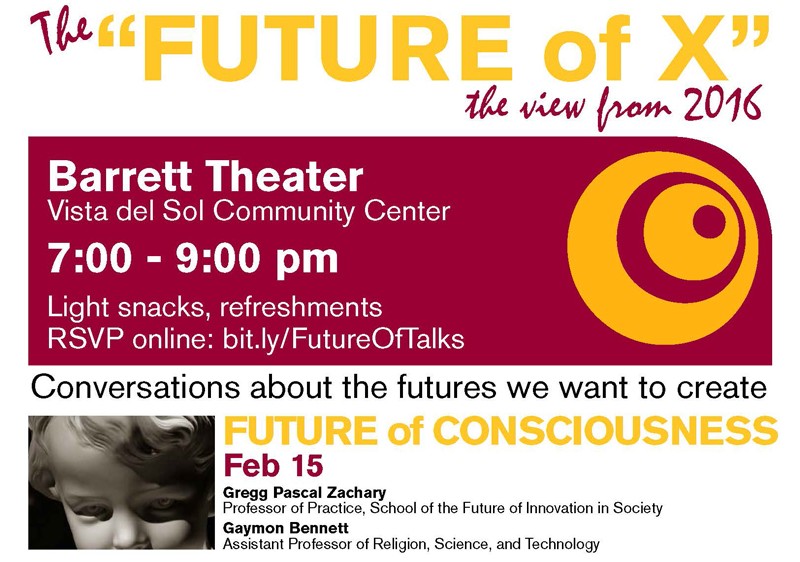Past CSPO Events
- April 29, 2016CSPO DC - New Tools for Science Policy
Innovation in Higher Education – Africa’s Turn
All over the industrialized world, university education is undergoing long-anticipated change. Universities, in Europe and especially North America, are emphasizing more learning through real-world experience, interdisciplinary studies, integrated teaching and research, social media, and online courses. For policymakers in developing countries, university-level education remains a lower priority, but emerging trends suggest wider participation by the children of middle classes and reduced reliance on top-down models of learning. Increasingly, the best and brightest of developing countries view university degrees as the new normal, and star students seek to balance mastery of established fields of disciplinary knowledge with an advanced education in interdisciplinarity, creativity, and entrepreneurship. In an unexpected turn, these trends are growing in visibility and significance in sub-Saharan Africa.
Drawing on parallel studies of public and private universities in Uganda and Kenya, Matthew Harsh (Concordia) and Gregg Pascal Zachary (Arizona State) present preliminary findings on innovations in higher education that augur well for workforce development, economic growth, and directing knowledge workers towards the pursuit of unmet societal goals, as well as rewarding individual careers. Harsh and Zachary pay special attention to the emergence of university-based studies in computer science at undergraduate and graduate levels. Dramatic growth in CS graduates in both countries since 2000 reflects demographic trends: widening access to universities for both men and women, as well as a move away from traditional professions and disciplines towards applied and theoretical studies in computing, information technology, and communications. Harsh and Zachary will provide a survey of what’s working and what isn’t in two East African countries where enrollments are growing rapidly and where economies are absorbing talented, well-educated graduates at rates without historical precedent for the region.
Matthew Harsh, G. Pascal (Gregg) Zachary
- April 27, 2016CSPO enLIGHTeNING Lunch
What is Bioart?
enLIGHTeNING Lunch with Hannah Rogers
This talk will probe a question about the intersection of contemporary art and biotechnology: What is bioart?
Hannah Rogers
- April 06, 2016CSPO enLIGHTeNING Lunch
enLIGHTeNING Lunch with Telpriore Tucker
Electric Bikes: Ride into the Future of Electrified Transportation

Electric bikes (e-bikes) are a trending technology combining a traditional bike with a battery and motor for instant propulsion.
Telpriore Tucker
- March 16, 2016CSPO enLIGHTeNING Lunch
EnLIGHTeNING Lunch with Sarah Davies
Hacking is Making is Doing: Hacker and Makerspaces and the Hacker Spirit
This talk reflects on the question: what goes on within maker spaces, and what do their users understand themselves as engaged in?
Sarah Davies
- March 11, 2016CSPO DC - New Tools for Science Policy
Different Technologies, Different Learning Rates: Policy implications for energy investments
Learning curves have become a robust technique for modeling technological change in energy portfolios and as inputs into forecasting models. However traditional financial strategies have been applied to energy generation portfolios without full consideration of the effect of learning rates.
The simplicity and universality of the experience curve (or performance curve) framework led R&D managers to apply it to everything from airplane manufacturing to nuclear power plants. It has been well understood for some time that different technologies have very different learning rates, but there was little or no theory as to why. Deborah Strumsky will discuss recent work that provided insights on the underlying determinants of learning rates differences across technologies, and the extent to which policies are able to accelerate or influence them.
Dr. Strumsky will discuss the implications of her research for policies related to mitigating climate change. Learning curves have become a robust technique for modeling technological change in energy portfolios and as inputs into forecasting models. However traditional financial strategies have been applied to energy generation portfolios without full consideration of the effect of learning rates. Dr. Strumsky will offer simulation results from recent work on improved energy portfolio investment strategies, and what it may mean for technologies like photovoltaics.
Deborah Strumsky
- February 29, 2016CSPO DC
Climate Change: This Time, It’s Personal
Personal narratives can provide the diversity of voices and values needed to effectively confront the complex challenges of a changing world. In a provocative new essay, award-winning environmental journalist Andrew C. Revkin brings forth one of these vital stories: his own. Chronicling the shifts in his thinking (and writing) over thirty years of covering climate change for outlets like the New York Times, he concludes, surprisingly, “global warming doesn’t worry me.”
Please join us for a wide-ranging conversation with Andrew about the challenges of writing about climate change and making an impact on readers through personal narrative. He will be joined by Lee Gutkind, founding editor of Creative Nonfiction, and Daniel Sarewitz, co-editor of Issues in Science and Technology; Andrew’s essay appears in the current issues of both magazines.
Andy Revkin, Daniel Sarewitz, Lee Gutkind
- February 24, 2016Co-sponsored
EnLIGHTeNING Lunch with Lauren Withycombe Keeler
Helping cities cope with disruptive technologies: The case of self-driving cars
Presentation of the opportunities and challenges posed by anticipatory governance and responsible innovation for helping cities plan for, absorb, and direct disruptive technologies within their jurisdictions by exploring the case of self-driving cars.
Lauren Withycombe Keeler
- February 15, 2016CSPO AZ
Future of Consciousness
Part 1 of the "Future of X" series presented by the School for the Future of Innovation in Society

Conversation about the futures we want to create
with Gregg Pascal Zachary, Professor of Practice, School of the Future of Innovation in Society and Gaymon Bennett, Assistant Professor of Religion, Science, and Technology
Light snacks, refreshments provided
RSVP online: bit.ly/FutureOfTalksGaymon Bennett, G. Pascal (Gregg) Zachary